#coup crew
Explore tagged Tumblr posts
Text
“Philosophical and Personal Musings on the Wizard Stone and the Axiom of Proliferation” – An Essay and Divinations for Arc 3 of “The Wizard, the Witch, and the Wild One”
From the Desk of The Bard Bullseye
Happy Birthday, Worlds Beyond Number!
Spoilers abound! This is an essay discussing the actual-play podcast “The Wizard, the Witch, and the Wild One” from the fine folks at @worldsbeyondpod It is an expression of my analysis of and engagement with the content of the second arc of the show and also contains some speculation about future plot and current themes. These interpretations are my own, include some reflections on my personal philosophy, and are written in a mostly academic style of writing (be warned, it’s around 3,000 words!). If you do read through it, I hope you find my points interesting and thought-provoking regardless of whether or not any of it turns out to be true (and I have done my level best to adhere to the facts of the story thus far, with transcript pages and timestamps cited when available/applicable).
Abstract (TL;DR, or I ain’t reading all that, but I’m happy for you):
The Wizard Stone’s discovery that the Axiom of Proliferation is untrue has major implications for the overarching story and the direction of the next arc. Herein, I explore my reaction to this moment in Episode 19 and how my experience and own philosophy potentially align with Stone’s. Then, I examine the logic of her argument and its implications for the greater worldbuilding in Umora. Specifically, there is a fundamental problem with the way that wizards are using the lingua arcana that is affecting the link between the Spirit and the Mortal worlds (i.e., the “greater binding”), and this is leading to detrimental effects. This, I believe is ultimately what Grandmother Wren (and now Ame) and Coven of Elders (and possibly the Man in Black?) are concerned with, though they have come to vastly different conclusions about who is at fault and how to solve this problem, which are yet to be revealed in the forthcoming third arc (see footnote 5).
Introduction
Something has piqued my interest and scratched a deep philosophical itch for me in the second arc of “The Wizard, the Witch, and the Wild One.” While the first arc introduced the characters, explored ideas of ‘quest fever,’ and masterfully wove in lore and character motivations for reclaiming Eursulon’s sword, Wavebreaker, the second arc has expanded upon the characters and their relationship to the greater philosophy of the Citadel and Umora.
I don’t usually speculate where stories might go next or craft my own fan theories. Especially for ongoing projects (i.e. TV shows, actual plays, books in a series, etc.), I tend to be along for the ride, and I spend time analyzing the story being told and the characters within. And rarely do I put these thoughts to paper, at least not coherently; I am more likely to ramble endlessly to a friend or lurk on Discord for others’ opinions, chiming in occasionally. However, I have noticed some things brewing in this arc that I wish to discuss at-length and even speculate upon: my perspective and analysis of the philosophy of the Wizard Stone, and the possible implications for the forthcoming third arc.
I don’t often see myself in stories. Not to say that I don’t see myself or parts of myself represented in media: i.e. demographically, socially, politically, etc., but rarely do I find a specific character or character motivation that ‘snipes through the duplex door’ where I go “oh shit that’s me” or “I relate to this on a deeper level.” This happened to me in Episode 19, when Suvi is investigating the records of her mother’s early time in the Citadel: her expulsion from the College of Divination and readmittance to the College of Abjuration because she had accused one of her professors of “treason against magic itself.”
Upon her dismissal from the Citadel, Stone wrote a dissenting missive to the Archmagi of the Citadel regarding one of the three metaphysical axioms, the Axiom of Proliferation, and how this particular axiom “does not describe any actual truth of the lingua arcana, nor does it more broadly describe any facet of the greater binding” (Ep. 19, transcript p. 12). She goes on to posit that not only is it “pure intellectual technology,” but that its continued acceptance as fact is a “danger to the future of wizardry” and “[a] stain on the face of magic itself” (Ep. 19, p. 12). An axiom in this context is described as “simple… laws that are given to young wizards about broad truths of spell casting in general… that are true across spells [and], … different schools of magic” (Ep. 19, p. 13). That is, “the Axiom of Proliferation is essentially that the more times a spell is written down … the weaker the spell becomes” (Ep. 19, p. 13).
An axiom as defined in philosophy is a statement that is self-evidently true and serves as a starting point for reasoning. Therefore, any argument against its truth would call into greater question the philosophical foundation of the Citadel itself. If Stone’s claim that this was not a true axiom had not been dismissed swiftly and discredited, it is possible (though highly unlikely, given the power of empire) that this would have led to a redefinition of the philosophy of wizardry in Umora.
This is what struck me like a bolt of lightning while listening to this episode. I did almost this exact thing when I was in grad school!
Stone is… me? Faulty logic and its effects
As part of my master’s degree, I took a philosophy seminar on bioethics, which covered some polarizing subjects and more fringe points of view. Most of these topics cannot be directly studied or supported by scientific evidence, so the conversation and academic debate is largely conceptual or theoretical (i.e., conducting research to investigate these ideas have varying states of legality and moral acceptability) (see footnote 1). This course was excellent and a bit out of my comfort zone, but it challenged me to think critically about fundamental logic and accepted ideas that often go unexamined until they are taken to the extreme. At one point in the semester, we were discussing a particular topic and the current state of debate surrounding it. Immediately, I was perplexed by some of arguments made to justify it, and at first, I didn’t have the language to express why. Much like Stone, I found myself screaming (internally) “you’re all idiots!” or “you’re missing the point/the bigger picture!” or “that’s not how that works!” Essentially, I had arrived at the conclusion that if this idea were to be implemented broadly in society, it would likely have major negative ramifications, and furthermore, not even achieve the desired and purported effect that they were arguing for!
Eventually, I figured out what the underlying problem was: a logical fallacy inherent and unidentified within the current debate. Since scholars had just accepted the argument at face value and moved on, most of the debate was concerned with its future implementation or theoretical follow-on effects on individuals and society at large. I did find some existing papers that danced around the idea of fallacious reasoning (i.e., that the theoretical benefits were greatly exaggerated, if not a zero-sum game, or that the negative long-term effects may outweigh the short-term benefits), but none named it specifically or even examined the logical argument the entire debate was predicated on. So, for my term paper, I researched and wrote about this fallacy, and in it, I discussed how the discovery and acknowledgment of it would reframe the debate and perhaps even bring about reform to existing systems!
In the process of writing and researching, I felt incredibly isolated intellectually (this was also peak-COVID so that didn’t help either). Now that I had put the pieces together, it seemed quite obvious to me, but it was difficult to find supporting evidence or other similar arguments to mine (even if they weren’t breaking the logic down so specifically). Was this thing I had reasoned actually true? Why had no one pointed this out before? What if I’m wrong? What if they’re right and I’m a fool for daring to challenge them? What does my professor think? They’re an expert and approved the topic, so I know I’m not entirely off-base, but do they agree with me? I knew that if I wrote a strong, supported, and persuasive argument, that I couldn’t fail, but I deeply cared whether or not I was actually right. It was also probably one of the first times that I wrote with passion (and specific planning ahead of time!), rather than churning out yet another good-enough research paper (that I may or may not have written days ahead of the deadline or the night before).
Thankfully, unlike Stone, my fears that I would not be taken seriously, or worse, told that I was flat out wrong (and be silenced) did not come to pass—my professor agreed wholeheartedly with my argument that this fallacy is pervasive in the current literature. (Though I feel must disclaim that I still could be wrong in some other aspect of my argument, and that simply arguing the existence of a fallacy can be treacherous! In philosophy, no one ever has the only or complete answer—if they claim to, they are either lying or ignorant.) As part of the course, we did a mock peer review in class and my professor sent us further feedback on our papers after we submitted our initial draft of the term paper.
One particular piece of feedback stands out to me upon reflection and comparison to Stone’s experience and the philosophy of wizardry. It said something along the lines of ‘We think that is a very admirable and unique take on this subject. No one found any fault in your logic; however, it is important to consider the practical implications of identifying this fallacy.’ Point taken, of course, that the mere identification of a flaw in logic is not the end of the conversation—it is merely the start of a new discussion and opportunity to surface new arguments.
In my case, the identification of the fallacy was the concrete thing I felt I could verifiably yell about (academically) to explain why I disagreed so vehemently with current literature (and some truly wild propositions made by certain scholars). Of course, one should not commit the ‘fallacy fallacy,’ which is that simply pointing out a fallacy invalidates the argument. Instead, it was a means to discuss practical implications: some less harmful methods, some overlooked existing solutions, and to pull knowledge from other related disciplines that had not yet been considered because this fallacy had yet to be identified (see footnote 2).
The philosophy of Stone’s accusation of ‘treason’ and treatise to the Archmagi
In listening to and reflecting upon this episode and the conclusion of the second arc, I wonder if Stone felt similarly to me: that she had a fundamental disagreement with the way that wizards (and the Empire) conduct magic. I wonder if she learned about the Axioms and something didn't sit right with her, so she dug into the philosophy or history of it. Moreover, I find it particularly striking that her original specialization was divination. Although it has not been stated outright, I think it can be plausibly inferred that Stone divined some kind of knowledge about the fundamental ‘wrongness’ of current wizardry and the disastrous follow-on effects it would have. She may have been unable to fully convey her revelation in the moment, and so just shouted ‘treason against magic’ at her mentor. As was the case with me, the Axiom of Proliferation was just the most concrete thing that Stone could point at to explain herself.
But beyond my own biases and affinity for Stone, it follows that she may well have examined or done a proof on the Axiom of Proliferation which led to her discovery that the premise of the Axiom was false. Let’s examine the argument that Stone may have made (and the one that Suvi may have done a poor proof of, by her own admission). The argument is as follows:
All Axioms of magic describe a truth about the fundamental nature of magic
The Axiom of Proliferation states that the more times a spell is written down (proliferated), the weaker the spell becomes, which is a truth about the fundamental nature of magic.
Therefore, the Axiom of Proliferation is an Axiom of magic.
This can be simplified:
All A’s have property B
C has property B
Therefore, C is A
This does not necessarily lead to a false conclusion, and while the argument may be valid, it may not always be logically sound, see for example:
All people are mortals.
John is a mortal
Therefore, John is a person.
In the Citadel’s view, there is no flaw here, because they teach (and presume) that the Axiom of Proliferation is true in the lingua arcana. Wizards, of course, are known by their secrets, so it follows that in their philosophy of magic, they would have some kind of justification for keeping magic limited to the select few. But, if one of the premises is false (in this case, premise 2), then this justification is in jeopardy. It stands to reason that Stone must have had serious evidence to declare that premise false, and as she was studying divination, it was likely a vision or prophecy of some kind. Presuming she is correct, then it also speaks to her incredible intelligence (although she did not have the social grace at 19 years old to deftly navigate this accusation) (see footnote 3a).
Although (as far as we know), Stone did not make another public ruckus about the Axiom upon returning to the Citadel, I don’t think this caused her to abandon the belief that the axiom was erroneous. Upon her readmission, she joined the College of Abjuration, specifically studying “counterspelling, dispelling magic, [and] sort of metamagic, … the magic of magic itself” (Ep. 19, p. 11). This might seem to be an odd choice for a backup specialization, but Stone’s issue with the Axiom and metamagic are deeply intwined philosophical concepts, as metamagic is essentially the equivalent to metaphysics in our world.
Wizardry and the nature of magic in Umora
Wizards are defined in Umora to be people that can use a “language of magic” the “lingua arcana” to cast magic, and importantly, that “they believe [the lingua arcana] is the language the universe uses to understand itself,” which was only coined about 250 years prior to the present story (Ep. 19, p. 16). At the end of the first arc, Suvi discovers from her father’s notes that the reflexive indicative, which was taught to her as a necessary component of the lingua arcana, is in fact entirely unnecessary for spellcasting. And further, Stone also doesn’t use the reflexive indicative, which is demonstrated through her unique casting of Mending in the very first episode. It is unclear so far in the worldbuilding (to me, at least) if the lingua arcana is the language the universe uses to understand itself, or if it is a construct used by people to explain, communicate, and more importantly cast magic in Umora (much like math and science are ‘constructs’ that describe the nature of our world, though the fact that it is constructed does not mean it is not true). If it is the latter, then there is likely to be forces at work, be it the components of spell casting (such as the reflexive indicative), the casters themselves, or others yet to be revealed, that are manipulating and restricting the nature of magic in Umora (see footnote 3b).
Thus, I would posit that there is some issue in the way that the restriction of the lingua arcana is affecting the “greater binding,” which is “the theory of magic, that magic is the interplay between the Spirit and the Real—or the Spirit and the Mortal” (Ep. 19, p. 14). Essentially, the lingua arcana describes the nature of the relationship between the Spirit and the Mortal world, while the greater binding is the metaphysical link between them. Stone all but confirms this in her letter to the Archmagi, that if the issue is left unresolved, it would endanger the future of wizardry (Ep. 19, p. 12).
Other pertinent wizarding history and context
Stone and Soft were also part of a group called the Acadator, which was dedicated to rooting out corruption and bad actors within the Citadel. We don’t really know too much else about them, the exact specifics of their philosophy, or if they still exist as a group (given that Steel and Eiorghorain were members). There is also some history surrounding two early wizarding groups pre-Citadel, the Antivoli and the Accordati, that had a philosophical disagreement about accepting the help of the Saraz Imperium for building the Citadel (specifically related to the sharing of magic), which led to a civil war called the Cataclysm of Carrow (Ep. 19, p. 16). In terms of timeline, the lingua arcana was coined in 1423, the term ‘wizard’ was coined in 1456, the Cataclysm of Carrow was in 1467, and three years later, in 1470, the Erien (Citadel) was built. The current story with the three protagonists is taking place in 1670, so it has only been 200 years since the Citadel was created, and the lingua arcana coined only 47 years prior to that (in less than a human lifespan).
Further, the creation of the Irulian Desert, the Erien, and the Citadel is a destructive history—wizards razed a verdant forest and turned it into a hot, unlivable desert with a miles high glass tower at the center. Additionally, the Wizards of the Citadel pool their magic beneath the Erien in an ‘Aerith,’ into which they deposit magical reserves and draw upon its combined strength when in crisis (see footnote 4). Mechanically, we see Suvi ‘donate’ unused spell slots at the end of the day.
We do know that Grandmother Wren’s cottage is located on top of a source of great magical power and serves as her sanctum. Wizards also use the towers of the Citadel as their sanctums, and I believe the following is speculation, as I do not think it has been canonized yet, but it is possible that the Aerith serves a similar purpose as a source of great magical power that previously belonged to the Spirits that wizards alone now use and control. This control is the key difference that may be contributing to, or even causing, detrimental effects on the greater binding.
The Witch(es)’s and the Wild One(s)’s perspectives
Additional evidence to support this theory of the Aerith's origins and purpose comes in Episode 23, when Eursulon meets the Man in Black and discusses their opinions on mortals, particularly wizards and their desire for control. Specifically, the Man in Black states, “that tower is the handle of a knife plunged deep into the heart of this world, a heart that is responsible for… a murder to the world of Spirits” (Ep. 23, 0:09:45-0:10:07).
Later, in a flashback with Mirara and Grandmother Wren, Mirara argues that “the world has burned before” (perhaps in reference to the creation of the Irulian Desert), that “[wizards] cannot be allowed to do this thing” (still unclear what that thing is), and the coven must make some kind of decision before it is too late (Ep. 23, 0:58:46-0:59:00). Wren pleas for another option, points this out as a false dichotomy, that they must not “be forced to choose between one slaughter and another,” and they should work to find common ground and coexist (Ep. 23, 0:59:07-0:59:33). Mirara retorts that she could never imagine the day that she would see “the will of wizards debase themselves” (i.e., that wizards would ever lower themselves from their current position of power) (Ep. 23, 0:59:39-0:59:52).
Wren then asserts a key point that correlates directly with Stone’s perspective: “There is nothing I have seen in the world of Mortals or of Spirits that shows me that there is a path that is wrong to tread” or anything that proves the pursuit of wizardry as inherently wrong (i.e., the lingua arcana), only those who “tread paths hurtfully, with cruel intention” (i.e., those abusing the lingua arcana for political purposes and imperial gain) (Ep. 23, 1:00:08-1:00:28). Wren also questions Mirara’s stance of wizardry as “an abomination against the natural order of the world” (Ep. 23, 1:00:40-1:00:47). Mirara then challenges her to consider her point of view and insists that even Wren cannot deny that “the poison of wizards does not spread so quickly as to choke the life from this world” (Ep. 23, 1:01:03-1:01:09).
My pure speculation and fan theory:
From this conversation, I postulate that Mirara and the Coven has taken an extremist and doomed perspective on the harm that is resulting partially from the Axiom of Proliferation (and perhaps the Aerith as well), while Grandmother Wren took a reformist stance. This would put her and her position as the Witch of the World’s Heart at odds with whatever plan the Coven intends to enact. Given what we know of the Witch Class and the other domains of the Coven, their plan is quite possibly violent, retributive, and holds little to no concern for the Mortals or people of Umora.
The third arc will begin with Ame’s meeting with the Coven of Elders at the North Pole, where they will attempt to destroy her station as the Witch of the World’s Heart. For all of the reasons above, I believe this event will connect directly to Stone’s declaration of “treason against magic itself,” but I will just have to (patiently) wait and see (see footnote 5).
Footnotes:
(1) I am well aware that I am being quite vague and obtuse regarding this subject and what specifically I was researching. Mainly because a) that’s not really the point of these musings, this is just some background info and context to explain my philosophy which is already longer than I would like, b) it would be impossible to do justice to an overview of this complex subject in an essay about something that resonated with me in a D&D podcast (and which does not engage with that subject directly, at least not in this context), c) I’ve already written a paper on this subject and am not interested in regurgitating it here, and d) Nunya Binyess (i.e. I could still be wrong about this fallacy and I’d rather discuss WWW than start a tangential IRL philosophical or political argument on this forum).
(2) Though on a deeper level, I partially disagree with the idea that I needed to account for the practical implications of the fallacy within the paper. I disagree that when challenging the fundamental nature of something (e.g., an erroneous argument, a misinformed policy, or an unjust system), there must be an immediate remedy or solution offered up. In my philosophical opinion, once a fallacy like that is identified for something that we hold to be fundamentally true, we need to sit in that revelation and undo the thought processes created by the incorrect assumptions. You cannot flip a switch and suddenly reverse all of the justifications that have gone into supporting a flawed, ingrained argument. To undo a pervasive, incorrect fundamental idea that has been implemented, internalized, or proliferated, first it must be fully examined for all its flaws, rescinded, and only then do we start from square one and think about practical changes (in a perfect world, of course, I am fully aware that the world does not work this way). I do often wonder about this reactive nature in society to demand immediate alternatives and solutions when norms are challenged, though I recognize this is a result of different lived experiences and worldviews. After all, this reactionary nature is true in Umora as well, and the wizards of the Citadel “tend to be a lot more about praxis and practice” (Ep. 19, p. 14).
(3a) Perhaps Stone rolled a nat 20 on some kind of intelligence check for the vision, but rolled a nat 1 on her Persuasion check against Sleep!
(3b) There is another essay I could write here about the history of science and empire (another grad school course) and the reflection of this in the Imperium, its taxonomy, and the (anti)-democratization of knowledge, but perhaps another time.
(4) Something that occurred to me when piecing together the Erien and the Aerith was the similarity to Morrow’s derrick that harnessed Naram’s power in the first arc. Both serve similar purposes as well, of generating magic and magical items. It makes me wonder if it was intended for the derrick to be Morrow’s poor attempt at recreating the glory of the Citadel, or if this is just a happy coincidence/connection between the arcs.
(5) I do want to briefly acknowledge the nature of improvisational storytelling in this situation, and that anything can change, be clarified, canonized, etc. at any point. This is partly why I don’t like to speculate much myself, because I trust the creators to tell the story the way they want to and follow the paths that appear, without projecting my own hopes or prescriptions when I listen to their wonderful creation that has been crafted with such care. It is also why my theory in the end is limited to the meeting with the coven- truly anything could happen at the beginning of the next arc, and whatever I might come up with is likely less interesting than what will happen. (NB: There is nothing wrong with fan theories or head canons! It’s just not usually something that interests me!) I merely saw a connection and through-line that deeply resonated with me in this second arc and felt compelled to write about it. Also, Worlds Beyond Number and WWW is just so fucking great, and it truly astounds me that this story is so deep that I have somehow written a 12-page essay analyzing essentially a 20-minute segment of one episode. I pray to Enzo that there are no grievous errors or spelling mistakes, but I wanted to post this on WBN’s first birthday! 🧡
#worlds beyond number#worldsbeyondpod#the wizard the witch and the wild one#www spoilers#wbn spoilers#wbn#wbn pod#the wizard stone#axiom of proliferation#philosophy#fan theory#chandri newell#soft and stone#the citadel#umora#fan essay#essay writing#food for thought#critical thinking#logical fallacies#coup crew
34 notes
·
View notes
Text
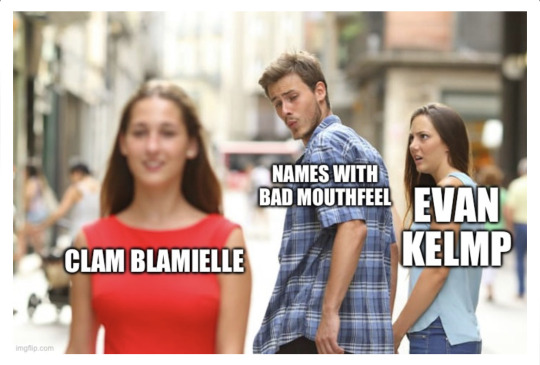
a name you swallow vs. a name that feels like you have a mouth full of peanut butter FIGHT!
#wbn#d20#space cram#cram daniels#misfits and magic#wbn fireside#evan kelmp#clam blamielle#coup crew#names#brennan lee mulligan#erika ishii
81 notes
·
View notes
Text
📽️ Hello dear citizen of Karnaca 📽️
It's been a week already since last announcement, so just a small heads up that we have still our interest check going on until August 1st 🎞️
Link down below ⤵️
#dishonored#dh#dishonored 2#dh2#dishonored zine#coup crew#zine#fanzine#coup crew zine#interest check#mortimer ramsey#grim alex#kirin jindosh#breanna ashworth#aramis stilton#luca abele#delilah copperspoon
13 notes
·
View notes
Text
#if you're unfamiliar with the stupid group name that's what some call the dh2 villain group#dishonored#dishonored 2#coup crew#hydrias things
64 notes
·
View notes
Text
We’re getting Cram Daniel!
10 notes
·
View notes
Text
AKAYONA CH 240 SPOILERS!!!!
THE KING HAS ARRIVED.

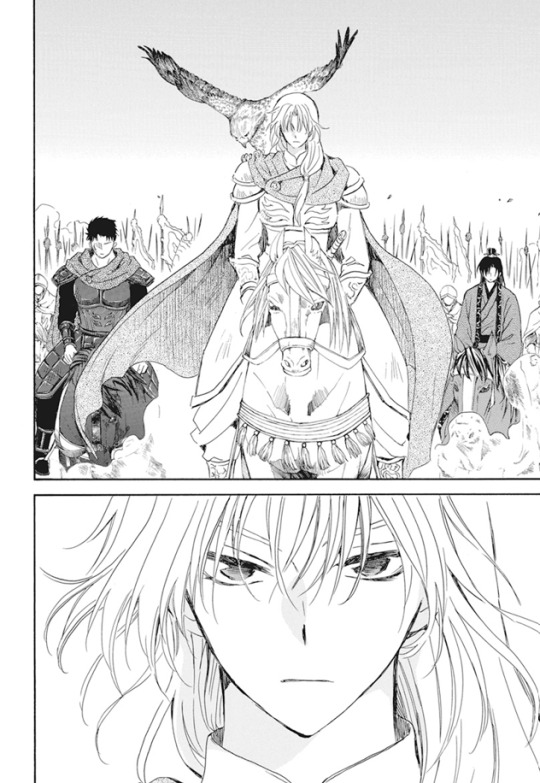
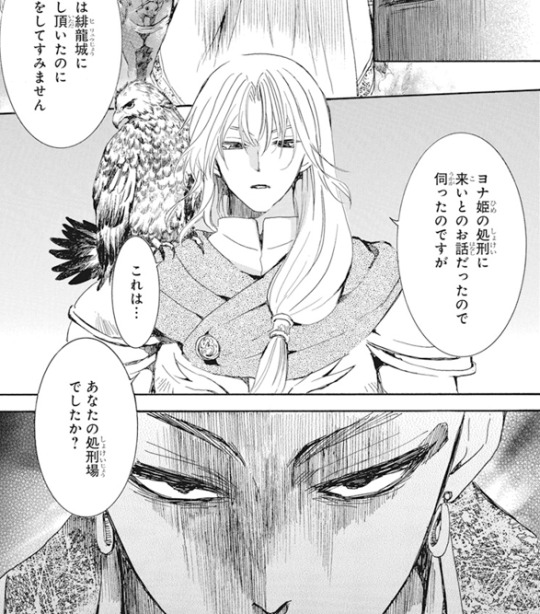
#akayona spoilers#akayona ch 240#akatsuki no yona spoilers#yona of the dawn#gulfan#coup crew#soowon is here#the king has arrived#soowon nation we won#im crying#im shaking#im hyperventilating#he's so aaacckkkhhgsdhhfhdhygh#oh my god soowon#the power he holds#he's so pretty#im on my knees
16 notes
·
View notes
Text
TOMORROW TOMORROW TOMORROW!!!!!!!!!
WORLDS BEYOND NUMBER!!!!!!!!
The hype is UNREAL!!!!
7 notes
·
View notes
Text
I can’t watch the IG stream tonight because I have to go to bed someone tell me if they invent a new cram daniels
6 notes
·
View notes
Text
Favouritism: a case study by Usopp
Also known as, my Zolu brainrot continues
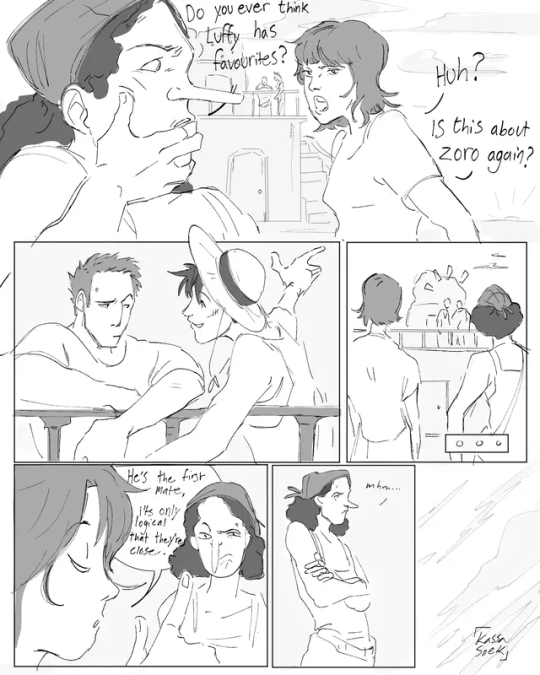
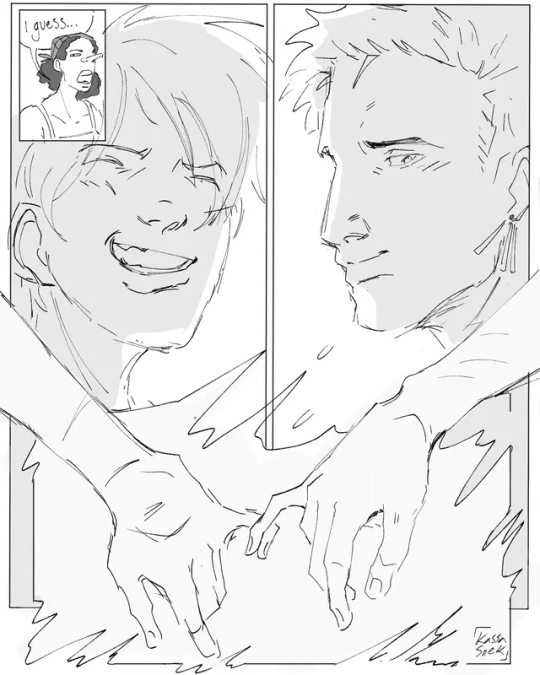
#Living for zoro and luffy not being overly into pda leading to the straw hats just knowing nothing#Cmon with all the luffy and zoro ace heascanons#The crew is OBLIVIOUS#Until one of the does something overly coupely and then bam all of a sudden everyone knows simultaneously#Love love love drawing soft zoro#Zoro#roronoa zoro#monkey d. luffy#luffy fanart#Zolu#one piece fanart#zolu fanart#zoro fanart
3K notes
·
View notes
Text
I really want to write/draw something for the kidnapping and rescue plot and the plot of one or two members getting injured on the battlefield 😭
Scenes and premises HHB fans got that Coup Crew fans are therefore legally entitled to:
Hot springs bonding
Traveling together in disguise on a tight budget
Kidnapping and rescue plot
Escaping a cave-in plot
Hot springs bonding
Comedic drinking scene revealing the relative alcohol tolerance of each member
Drunk scenes in general
Hot springs bonding
Sleeping in a cramped tent together
Cooking/chores scene concretely establishing which member is Team Mom once and for all
Tense standoff where one member is threatened by a third party
One or two members gets injured on the battlefield and it looks real bad but they’re all okay a few scenes later and it was just drummed up for artificial tension and whump which is kinda disappointing but at least we got to see the characters worried about each other right
Hot springs bonding
Awkward bonding at the hot springs
Get in that onsen you reticent bastards
66 notes
·
View notes
Text
So Cram Daniel part 2 dropped.
Very few coherent thoughts.
I feel like Aabria has exacted perfect revenge for all the lotr references. And by SPOILER UNDER THE CUT
Being the first to say the name of the podcast inside the narrative!!!
Congrats. You dunked that shot right off Brennan's head.
Some highlights:
A nat 20 over 2 dice.
Slam dying for literally no reason, like they were so ahead
The continued abuse of the mechanics
Erika trying to counterspell the counterspell but didn't have it
The Parent Trap
Clam using 12 year old girl strategies to destroy her opponent
9th level meteor swarm
You're dead! You've been dead the whole time!
Perfectly ridiculous. Lived up to its chaotic origins. To be honest, more than a little disturbing. Like not a negative, but the end is going to fucking haunt me.
#aabria iyengar#cram daniel#worlds beyond number#coup crew come through!#part 2#brennan lee mulligan#erika ishii#lou wilson#spoilers
179 notes
·
View notes
Text
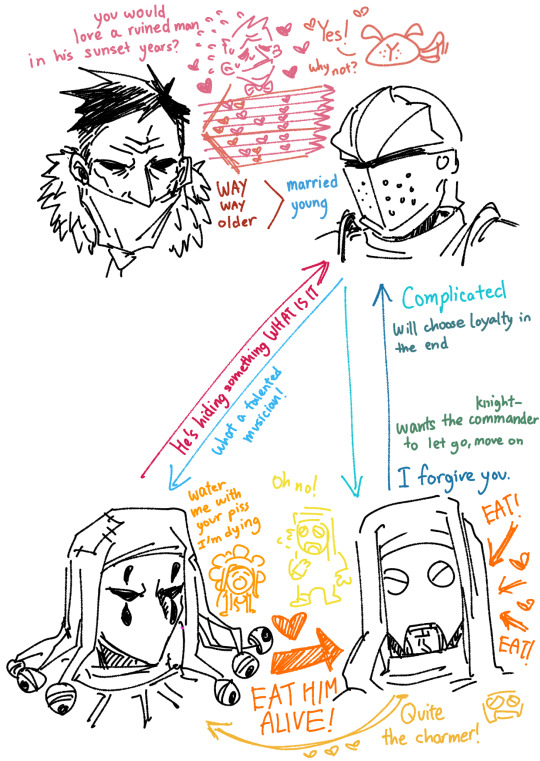
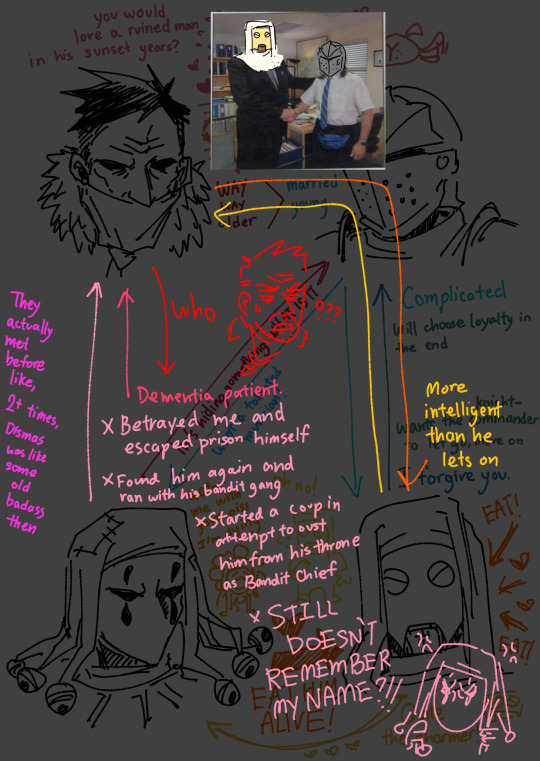
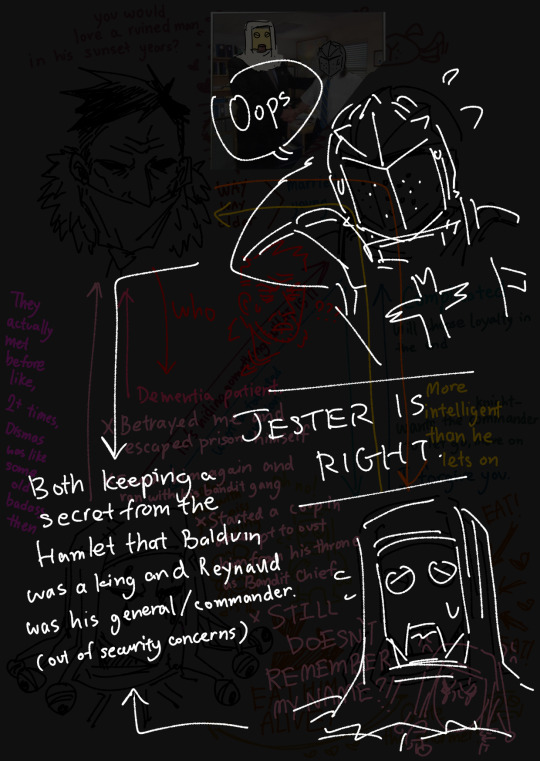
Was joking with a friend that "Dismas/Reynauld and Baldwin/Sarmenti would have the craziest double date" and realised that maybe can share the dumb headcannons too
#donodoodle#darkest dungeon#it's just silly headcannon dump but I love messy relationship pointers#There should be like#At least 3 layers of mess here#Also Sarmenti would be the janitor in Dismas's bandit crew#The coup is unsuccessful and he was kicked out#But in the Hamlet he started another coup when he realised that Reynauld and Dismas were running the show#Just to piss Dismas off#And the man STILL cannot remember his name like straight ass “who is this guy” behaviour#Anyways they'll have the craziest double date
55 notes
·
View notes
Text
witch class design talkback for next fireside inter-arc bone cone 👀👀👀👀👀👀👀👀👀
#wbn#wbn fireside#worlds beyond number#and also wizard subclass if it’s ever fully revealed#but kinda love if it’s secret until level 20 because wizards are known by their secrets#wbn bone cone#coup crew
33 notes
·
View notes
Text
📽️ Hello dear citizen of Karnaca 📽️
There's not much time left for the form, if you could take the time to answer it and spread it around so we could gather more people, thank you!!
Link down below ⤵️
#dishonored zine#dishonored#dh#dishonored 2#dh2#coup crew#coup crew zine#fanzine#interest check#mortimer ramsey#grim alex#kirin jindosh#breanna ashworth#aramis stilton#luca abele#delilah copperspoon
5 notes
·
View notes
Text
mass effect fandom typically has no problem disregarding or rewriting portions of canon, but one thing i have almost never seen touched is the friendship between garrus and shepard. so here is a poll because i am genuinely curious. i tried to be as expansive as poll limitations allowed, but since we are already throwing out canon i recognize there are a lot of variances that haven't been included. because of that, i would particularly like it if people elaborated about their non-romantic relationship with garrus in the tags, comments, or reblogs - especially if you are someone who has voted for any of the non-friend options. thanks for your time!
this post is not meant to be garrus critical. garrus enjoyers are welcome to participate in the poll, i only ask that you are respectful toward other people who may not have him as their favorite, or who may just simply roleplay a shepard that does not have him as their (best) friend for whatever reason.
#mass effect#mass effect polls#kaidan alenko#ashley williams#liara t'soni#i feel like such an ass tagging with those char tags but i really want a discussion started 😭#if you want it removed from one of the character tags let me know and i'll oblige#(i didn't tag gman only bc i feel like most of the ppl who frequent that tag are the ones who romance him and this is a non-romance poll)#tbh i already know what the most popular choice(s) are going to be#but maybe the convo it starts will be interesting :3#anyway. my answer to the poll:#nadia doesn't recruit him in ME1 and i diverge from canon options by ME3#i think he is a crew member in ME2 as per canon but in ME3 he only joins temporarily and leaves with victus#like how you can dismiss the VS after the coup and they just become a war asset#the overall poll option that suits her best i think is just that she doesn't hate him but she also doesn't trust him#but if i went by game me1 would be that she mostly doesn't remember he exists#me2 would be antagonistic coworkers but (very grudging) trust in combat#me3 is the overall poll option i already mentioned. more or less
100 notes
·
View notes
Text






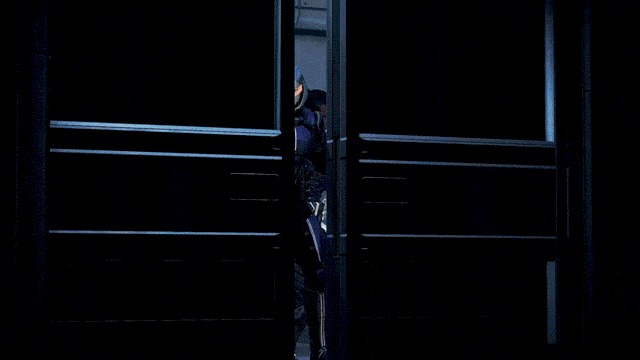

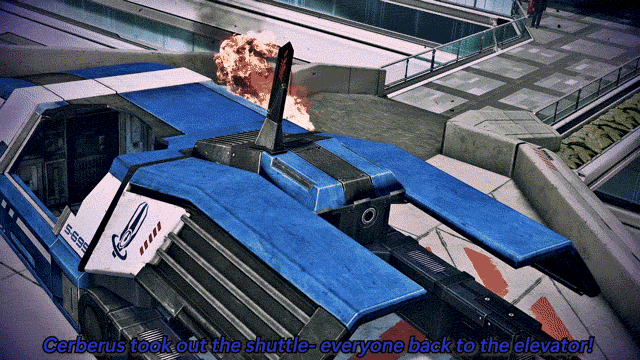
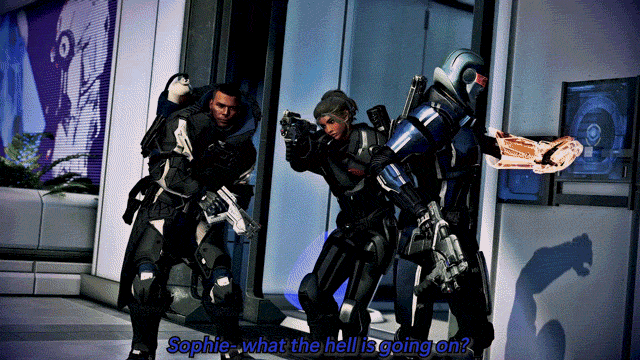
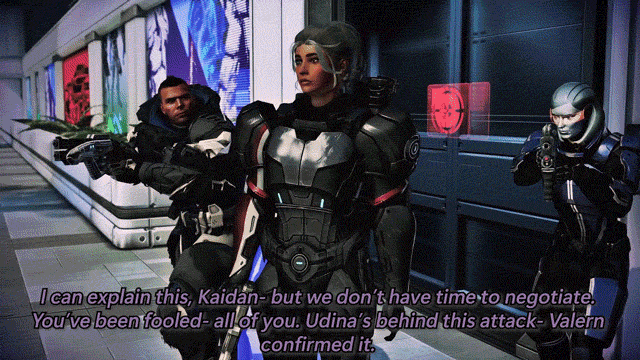
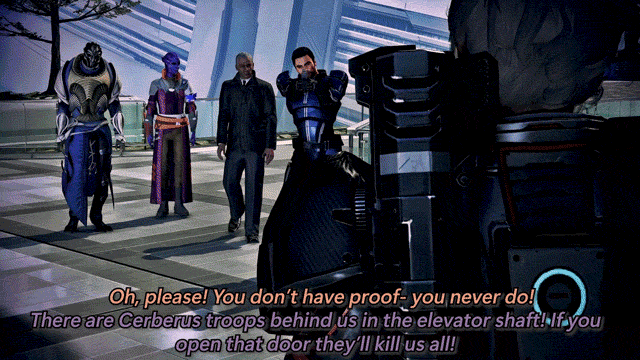
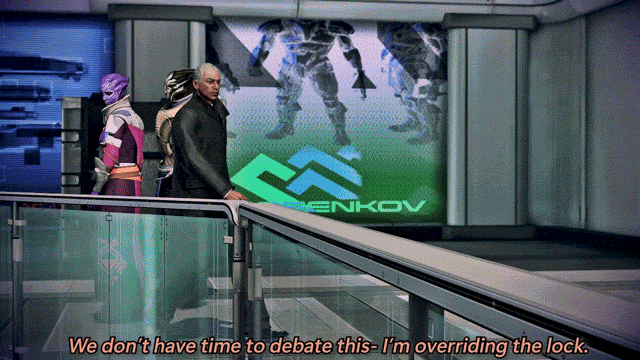
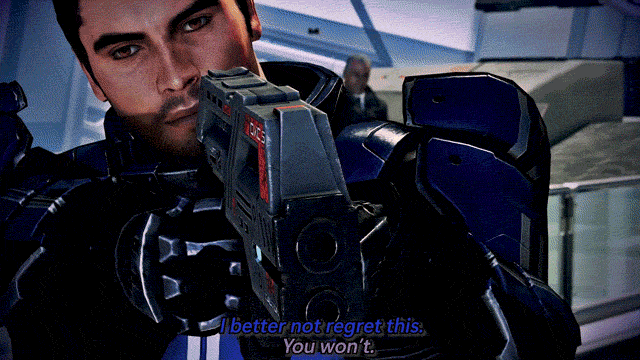
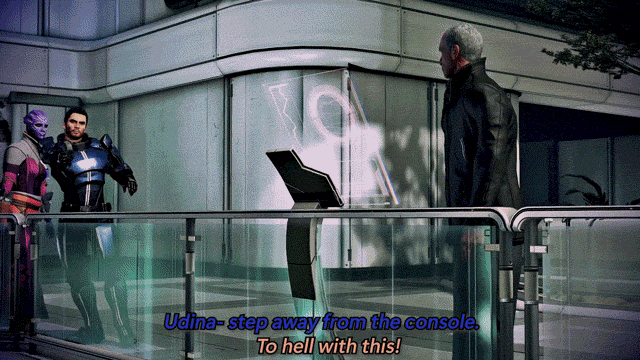



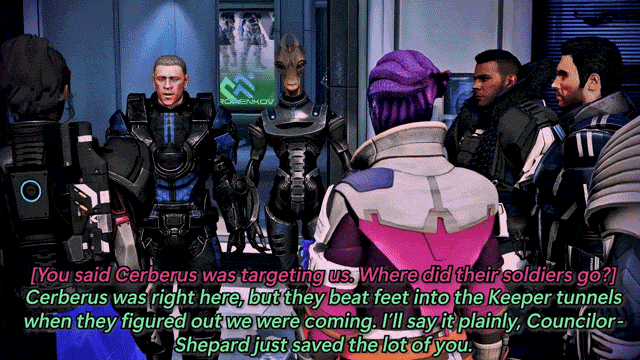



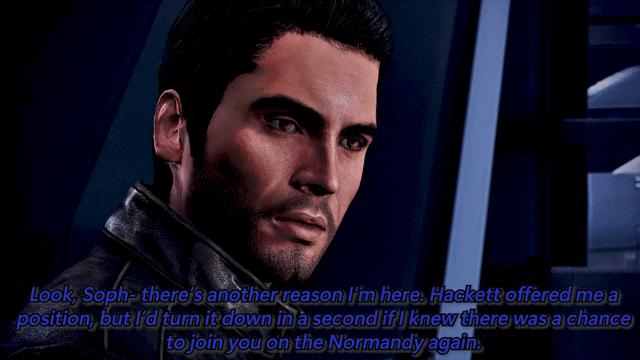



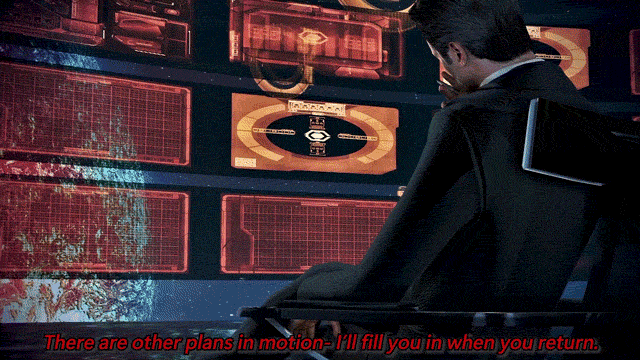
THE BEST OF PRIORITY: THE CITADEL (PART 2)
Featuring: Cmdr. Sophie Shepard, Lt. James Vega, EDI, and Maj. Kaidan Alenko With: Councilor Donnel Udina, Councilor Tevos, Councilor Laiel Sparatus, Cmdr. Armando-Owen Bailey, and Kai Leng And a Special Guest Appearance by: The Illusive Man But sometimes the way a thing goes down does matter, Sophie. Later- when you have to live with yourself. Knowing that you acted with integrity- then it matters. Mass Effect 3: Legendary Edition (2021)
#mira makes gifs ✨#sophie shepard#james vega#EDI#kaidan alenko#shenko#fshenko#mass effect#mass effect 3#me3#mass effect legendary edition#dailygaming#james’s panicked face as the shuttle goes down you will always be famous to me bc you are so relatable#at this point i just know the normandy crew is not letting shep EDI or james near anything mechanical anymore#(something mechanical explodes around them on literally every mission at this point- cars.. bombs.. ships.. you name it!) :)#the way i didn’t even realize EDI and kaidan were wearing matching armor on this mission until i got to the elevator and i- 🥹 (blue crew!!)#but like- the way when soph gets off the elevator and kaidan has the gun drawn and she tells them to lower their weapons??#and EDI and james don’t even hesitate? THOSE ARE MY BABIES!!! THATS MY SQUAD RIGHT THERE!! THE LEVEL OF TRUST BETWEEN THESE THREE!! 🥹🥹🥹#and they don't raise their weapons again?? not until soph raises hers?? like it's the level of trust between her and them for me 🥹#i will say i talk a lot about how me3 shenko canon doesn’t really follow my own shenko canon (and my canon coup is MUCH DIFFERENT)#but something i noticed about the coup that i really liked? when kaidan has his gun drawn on shep you can see his hands shaking a little#it’s SO SUBTLE (and it’s easier to notice when you’ve got the video slowed down) but like?? the way his hands aren’t steady??#when he has the gun drawn on someone he loves?? i cried a bit making that gif ngl 🥺#the soft little ‘you won’t’ from shep after ‘i better not regret this’ makes me 🥺 every time.#there’s a canon reason soph doesn’t take the renegade interrupt but part of it is bc i like kaidan’s convo on the docks better :)#speaking of the docks the intro to the convo is a bit nonchalant but i like kaidan’s speech about integrity/living with your decisions#and the conversation between him/shep about what happened on the landing pad (though i wish it was a tiny bit longer!!)#there’s no ‘i feel like you would have taken me out’ line in the soph™️ canon but we supplemented it with some rewriting bc loose canon™️#(she never draws a gun on the landing pad either but that’s a story for the actual canon 🙃)#and yes i gif’ed the ass shot. there’s only one valid ass shot in the series and it’s this one! and you can quote me on that! ✨
18 notes
·
View notes